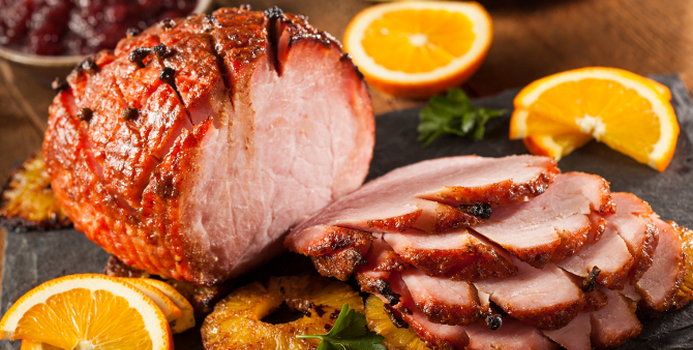Lean pork is a healthy choice of meat. It is a good source of proteins, vitamins and minerals. The low sodium content makes it a good choice of meat if you want to maintain healthy blood pressure. Below is a breakdown of key nutrients available in 100 grams of the cooked meat. This serving provides 190 calories.
- Protein - 30 grams
- Fat - 5 grams
- Vitamin B1 - 65 percent of recommended daily intake
- Vitamin B2 - 20 percent of recommended daily intake
- Vitamin B3 - 45 percent of recommended daily intake
- Vitamin B6 - 25 percent of recommended daily intake
- Vitamin B12 - 70 percent of recommended daily intake
- Iron - 15 percent of recommended daily intake
- Magnesium - 10 percent of recommended daily intake
- Phosphorous - 20 percent of recommended daily intake
- Zinc - 35 percent of recommended daily intake
Protein
Lean pork provides all 9 essential amino acids. This protein is also easily digestible which enhances various functions in the body. Protein helps to build and repair tissues throughout the body. It is also needed for cell growth and healthy membranes. Protein is a key nutrient for immunity functions in the body. It is required for the formation of white blood cells which are vital antibodies. A 100 gram portion of the lean meat provides about half of the daily requirements for the body.
Fat
A 100 gram serving contains 5 grams of fat. More than 50 percent of this is unsaturated fat which is healthier for you. Some fat is essential in a healthy diet. It provides energy and nutrients for normal growth. Fat also helps to maintain healthy skin. Fat in lean pork contains vitamins A, D, E and K. The fat also contains conjugated linoleic acid (CLA), an antioxidant. This antioxidant has been established as helpful in the prevention of certain cancers and heart disease.
B Vitamins
Lean pork provides a good mix of B vitamins. Vitamin B1 enables various metabolic processes in the body. It also supports growth and repair of nerves and muscle tissues. Vitamin B2 helps in energy production. It also plays a role in growth and repair of tissues. It facilitates good vision and promotes healthy skin. Pork is an excellent source of vitamin B3. This facilitates the release of energy from metabolism. It also promotes the health of the digestive tract and healthy skin. Vitamin B6 also plays a role in metabolism. It supports the functions of the central nervous system as well as metabolism. The meat also contains high amounts of vitamin B12. This supports the health of the nervous system. It also boosts vitality.
Iron
Iron is vital for energy production. It facilitates physical and mental functions. This boosts your productivity levels. Iron is a vital ingredient required for hemoglobin formation. Hemoglobin is a basic component of red blood cells and transports oxygen throughout the body.
Magnesium
Magnesium is a vital mineral for development of strong teeth and bones. It also helps to keep blood pressure stable. This improves cardiovascular health and lowers the risk of heart disease. Magnesium also helps to maintain a healthy balance of energy within the body.
Zinc
Few meat products give you as much zinc as lean pork. Zinc facilitates bone formation in children and teenagers. It also helps to maintain bone structure and helps prevent bone loss in older adults. It improves the body's resistance to infections and boosts immunity.



